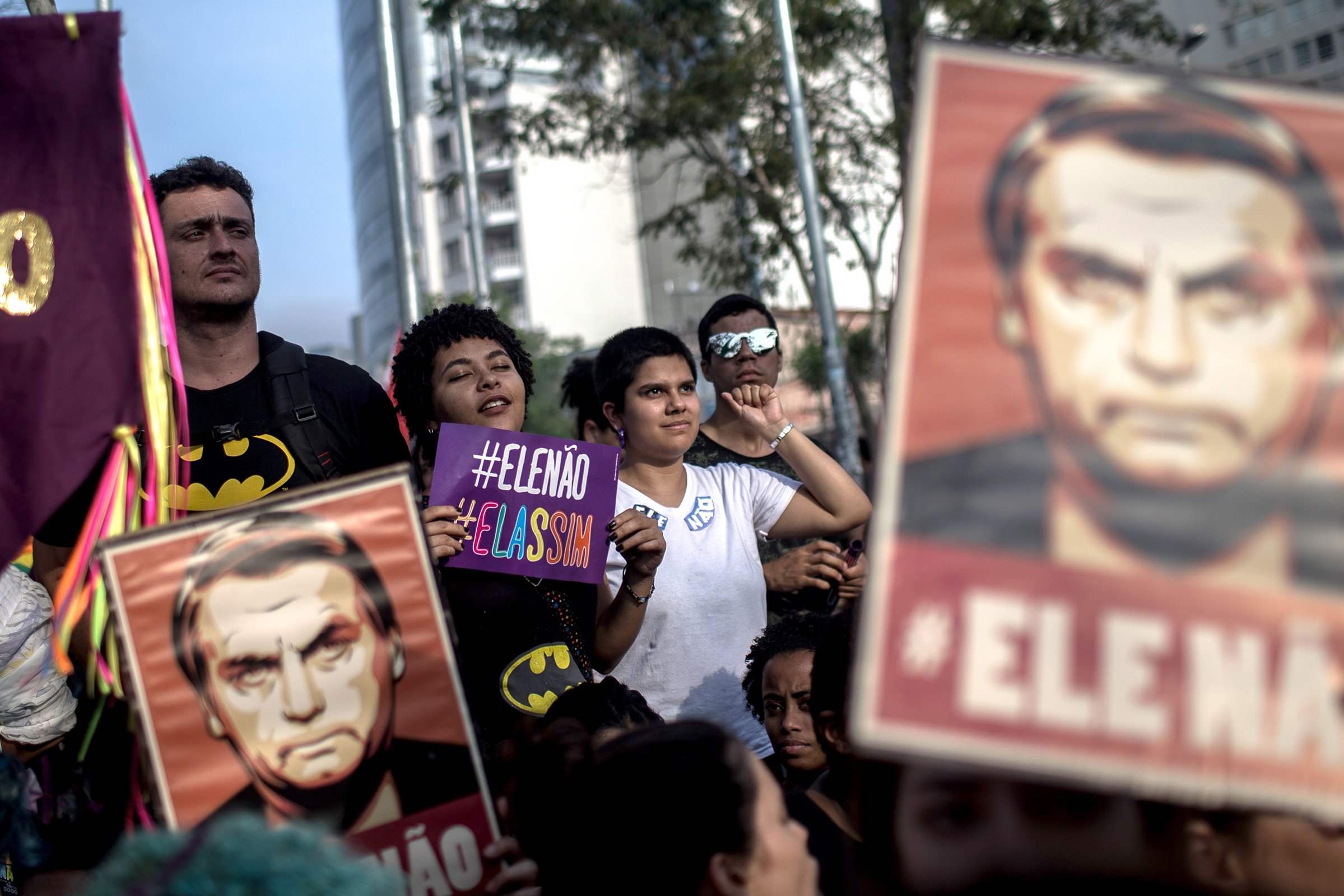
The past two years have seen angry voters in the U.S., France, Italy, Mexico, Pakistan and other countries cast aside the familiar political establishment to embrace candidates who embody change. Now it’s Brazil’s turn.
On Oct. 7, voters head to the polls for the first round of Brazil’s presidential election. The field includes 13 candidates. Two men have dominated the conversation this year. The first, former President Luiz Inácio Lula da Silva, or Lula, is in prison and won’t be allowed to compete.
The other is Jair Bolsonaro, a former army captain and far-right candidate best known for his nostalgia for the military dictatorship that ran Brazil from 1964 to 1985–as well as for a Sept. 6 knife attack that left him hospitalized. He has a history of incendiary remarks against women and LGBT people; in an August interview with TIME, he compared gay men to pedophiles. Despite all this, Bolsonaro is favored to reach a second-round runoff with a single opponent on Oct. 28.
It’s not hard to explain why Brazilians are looking for something new. Their country emerged last year from its worst-ever recession, but unemployment remains stubbornly high. Brazil is still embroiled in the largest public-corruption scandal in its history. The Lava Jato (Car Wash) investigation into hundreds of millions of dollars paid by Brazilian construction giants to win government contracts has resulted in more than 200 convictions of figures including politicians and executives. It has driven one former President, Dilma Rousseff, from office and is the reason another, Lula, is in prison.
Violent crime is also on the rise. Homicide rates have hit record highs. Brazil’s military has patrolled the streets of poor neighborhoods in Rio de Janeiro since February. A Gallup survey published on Sept. 27 found that just 17% have confidence in Brazil’s government and just 14% have faith in the integrity of Brazil’s elections.
There is little investment in the future. Brazil’s government now spends more to pay interest on government debt than on education or health care. Little wonder then that another recent survey found that 62% of young Brazilians say they’d leave the country if they could. It’s this demographic that is driving support for Bolsonaro, too young to remember the brutal regime he idolizes.
So is Brazil on the verge of a return to its authoritarian past? It’s not likely. Though Bolsonaro looks set to advance to a runoff vote, there are plenty of Brazilians who will vote for virtually anyone against him in the second round. Bolsonaro’s “rejection rate,” the share of voters who say they won’t support him under any circumstance, is above 40% and on the rise.
And even if he wins, Brazil is no banana republic. Despite its dysfunction and social problems, this is a country with strong political institutions. Bolsonaro’s fringe Social Liberal Party will have few seats and few allies in Brazil’s Congress, and unless he can make peace with enough members of the many parties within the political establishment he regularly attacks, he wouldn’t pass much legislation–let alone make a bid for dictatorial power.
The lesson of the Car Wash probe is not that Brazil’s political and business cultures are corrupt, though certainly they are. It’s that Brazil’s institutions, unlike those of so many other developing countries where corruption continues unabated, have the means to hold powerful people accountable and to check the excesses of government. If he wins, that will also apply to Jair Bolsonaro.
More Must-Reads from TIME
- Why Trump’s Message Worked on Latino Men
- What Trump’s Win Could Mean for Housing
- The 100 Must-Read Books of 2024
- Sleep Doctors Share the 1 Tip That’s Changed Their Lives
- Column: Let’s Bring Back Romance
- What It’s Like to Have Long COVID As a Kid
- FX’s Say Nothing Is the Must-Watch Political Thriller of 2024
- Merle Bombardieri Is Helping People Make the Baby Decision
Contact us at letters@time.com